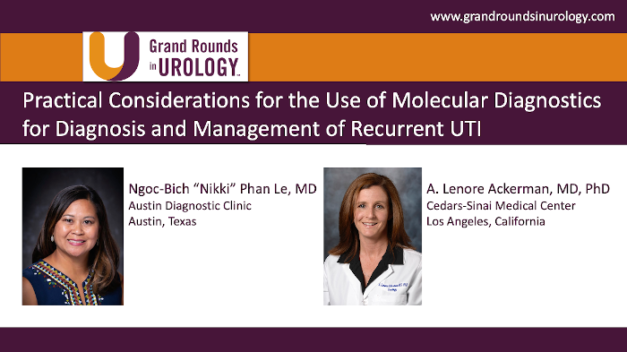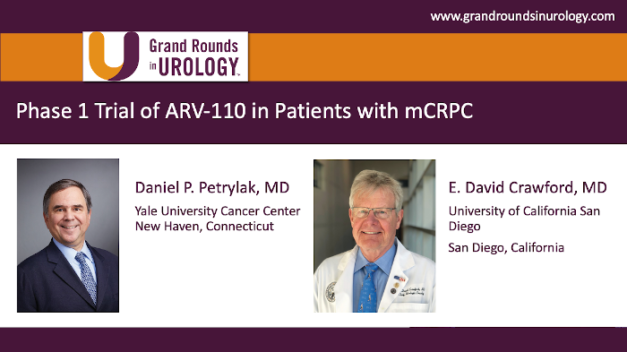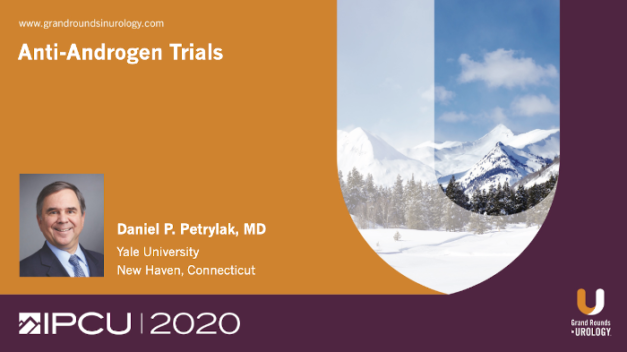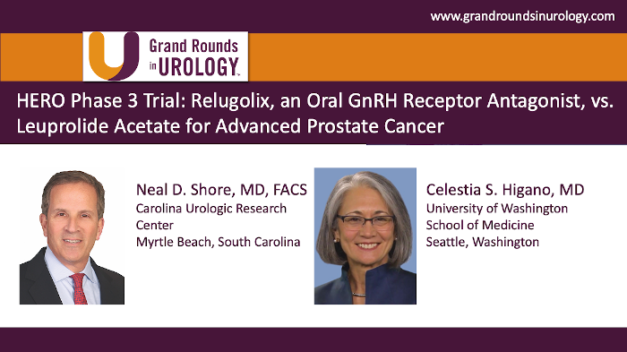Practical Considerations for the Use of Molecular Diagnostics for Diagnosis and Management of Recurrent UTI
Ngoc-Bich “Nikki” Phan Le, MD, a urologist specializing in female pelvic medicine and reconstructive surgery at the Austin Diagnostic Clinic, and A. Lenore Ackerman, MD, PhD, Assistant Professor of Surgery, Urology, and Pelvic Medicine and Reconstructive Surgery at Cedars-Sinai Medical Center and Section Editor of the Next Generation Microbiome and Urologic Infection Learning Center on Grand Rounds in Urology, discuss how to effectively use molecular diagnostics to help in the process of diagnosing and managing recurrent UTIs. They outline the differences between patients with multiple types of infections over time and those with truly recurrent infections by the same bacterium, and how this difference creates the need for alternatives in initial evaluation. They also specifically detail how the strength of molecular diagnostics is in their ability to detect bacteria missed in cultures, which can help prescribers make better decisions when choosing antibiotics for treatment. Drs. Le and Ackerman conclude by discussing how to proceed with treatment, and how the data presented by molecular diagnostics allow for more precise treatment methods.
Read More




